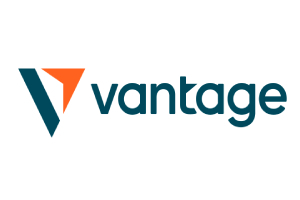The rapid rise in the use of cryptocurrencies has prompted the availability of platforms to buy, sell, and swap various cryptocurrencies. The platform through which these operations are carried out is called a “crypto exchange”. There are numerous crypto exchanges. A few examples include Binance, Uniswap, and Kraken.
These crypto exchanges can be classified into two types: centralized exchanges and decentralized exchanges.
The involvement of the intermediary in centralized exchanges, also known as the middleman, leads to an increase in the cost of transactions. The middleman collects a fee for transactions. The cost of using the decentralized system is quite cheaper due to the elimination of the intermediary fees. The cost is generated from the automated system put in place to organize the trading of crypto assets.
The intermediary that exists in a centralized exchange requires that users of cryptocurrencies and investors provide documents and identity cards for recognition. These documents are known as “know your customer” (KYC). Since the decentralized system has no intermediary, there is no requirement for these documents or identity cards.
The intermediary holds the crypto assets for investors in the centralized exchange. This means they are in charge of the security of the investors’ or traders’ crypto assets. This is different from the decentralized exchange where the investor holds his crypto assets. Only such an investor has access to their crypto assets with specific codes, keys, or passwords.
This has both an advantage and a disadvantage. In a situation where a crypto owner loses access to his crypto assets in a centralized system, the intermediary can provide access to such a crypto owner. In the case of an investor or trader who uses a decentralized system, such a person has no intermediary to help provide access to their crypto assets. Hence, he faces the danger of losing the cryptocurrency.
The disadvantage of having an intermediary hold the crypto assets is that they become quality targets for hackers. If their security gets breached, hackers can cart away a large number of crypto assets from the intermediary that holds a lot of investors’ assets.
Centralized exchanges come with a middleman, a higher cost of operation, a prime target for attackers, more liquidity for trading, and a requirement for traders to get identified. Decentralized exchanges come with an automated system for exchanges, a lower cost of operation, lower liquidity, and individual security, which seems safer. Examples of decentralized exchanges include Uniswap, Zigzag, and Pancakeswap. Examples of centralized exchanges include Binance, KuCoin, FTX and Kraken. The choice of crypto exchanges depends on the features that fit the investor, as both have their pros and cons.
You can purchase Lucky Block – Guide, Tips & Insights | Learn 2 Trade here. Buy LBLOCK
Note: Learn2.trade is not a financial advisor. Do your research before investing your funds in any financial asset or presented product or event. We are not responsible for your investing results.
- Broker
- Min Deposit
- Score
- Visit Broker
- Award-winning Cryptocurrency trading platform
- $100 minimum deposit,
- FCA & Cysec regulated
- 20% welcome bonus of upto $10,000
- Minimum deposit $100
- Verify your account before the bonus is credited
- Fund Moneta Markets account with a minimum of $250
- Opt in using the form to claim your 50% deposit bonus
Learn to Trade
Never Miss A Trade Again

Signal Notification
Real-time signal notifications whenever a signal is opened, closes or Updated

Get Alerts
Immediate alerts to your email and mobile phone.

Entry Price Levels
Entry price level for every signal Just choose one of our Top Brokers in the list above to get all this free.



